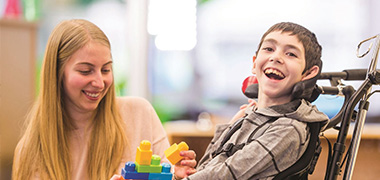
This role has a moderate level of AI exposure. AI can enhance efficiency for some tasks, but this job still relies on human skills and decision-making.
Explore all careersBehaviour Support Specialists create and implement behaviour support plans for individuals with disabilities or significant behavioural issues.
Get qualified to work as a Behaviour Support Specialist with a course recognised across Australia. Speak to a training provider to learn more.
Browse occupations related to Behaviour Support Specialist
The average salary for Behaviour Support Specialists working in Australia right now is $99,996 per annum. These are median figures for full-time employees and should be considered a guide only.
 Courses.com.au Team
Courses.com.au Team
There are no clear employment figures for Behaviour Support Specialists working in Australia right now. They are employed by community service organisations, charities, and government agencies.
 Courses.com.au Team
Courses.com.au Team
Behaviour Support Specialists are university-qualified and are registered under the National Disability Insurance Scheme (NDIS). Suitable degrees for this occupation include a Bachelor of Psychology, Bachelor of Social Work, Bachelor of Community Services, or Bachelor of Counselling. If you are serious about this career path, we recommend contacting the Behaviour Support Practitioners Australia (BSPA) which is the peak industry body in this country.
Source: Australian Government Labour Market Insights 2023
 Courses.com.au Team
Courses.com.au Team



Behaviour Support Specialists are community-based professionals who develop and implement behaviour support plans for individuals with a disability or children with significant behavioural issues. They work for NGOs, charities, and government agencies and are also known as PBS practitioners.
As a Behaviour Support Specialist you could be observing and evaluating a client’s behaviour, developing a treatment strategy that seeks to reduce challenging behaviour and improve the client’s quality of life, meeting with a client’s carer and family members to discuss how they can provide holistic support, reviewing data on the client’s progress, or providing guidance to teachers and allied health professionals during treatment.
To succeed in this occupation you’ll need a well-developed sense of empathy, excellent interpersonal skills, and the willingness to travel to client houses, schools, and residential facilities.